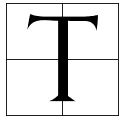 he concepts of soul and spirit have long fascinated philosophers, theologians, and individuals on spiritual journeys. While these terms are often used interchangeably, they represent distinct aspects of the human experience. In this article, we delve into the profound question of what differentiates the soul from the spirit. Through an exploration of various religious and philosophical perspectives, psychological insights, and personal reflections, we aim to shed light on these enigmatic aspects of our inner selves.
he concepts of soul and spirit have long fascinated philosophers, theologians, and individuals on spiritual journeys. While these terms are often used interchangeably, they represent distinct aspects of the human experience. In this article, we delve into the profound question of what differentiates the soul from the spirit. Through an exploration of various religious and philosophical perspectives, psychological insights, and personal reflections, we aim to shed light on these enigmatic aspects of our inner selves.
Religious and Spiritual Perspectives
In religious and spiritual contexts, the soul and spirit are often regarded as distinct entities. Different traditions offer varying definitions and interpretations, but a common understanding is that the soul represents the eternal essence of an individual, while the spirit refers to the divine spark or life force that animates all living beings.
For example, in Christian theology, the soul is believed to be the immortal and spiritual part of a person, distinct from the physical body. It is considered the seat of consciousness, emotions, and individuality, and is said to carry the accumulated experiences and spiritual growth from one lifetime to the next. On the other hand, the spirit is seen as the breath of God or the Holy Spirit that infuses life into all creation.
Similarly, in Eastern philosophies like Hinduism and Buddhism, the concept of Atman or Jiva refers to the individual soul, which is eternal and reincarnates across lifetimes. The spirit, known as Brahman or Nirvana, represents the ultimate reality or enlightenment that transcends the individual self and unifies all beings.
Psychological Perspectives
From a psychological standpoint, the concepts of soul and spirit take on a different meaning. Psychology focuses on understanding the human mind, emotions, and behavior, and does not inherently incorporate religious or metaphysical notions. However, psychological theories can shed light on the aspects of the inner self that align with the soul and spirit.

Psychologists often use the term “self” to refer to the core identity or sense of who we are. This self encompasses our conscious and unconscious thoughts, emotions, beliefs, values, and memories. While the self may not directly correspond to the religious notions of the soul or spirit, it reflects the multidimensional nature of our inner being.
Psychological frameworks, such as Carl Jung’s theory of the collective unconscious, explore the depths of the human psyche and propose the existence of a universal spiritual dimension shared by all individuals. This collective unconscious could be seen as an aspect of the human spirit, representing our innate connection to something greater than ourselves.
Exploring the Essence of the Soul and Spirit
To delve deeper into the essence of the soul and spirit, it is essential to explore our personal experiences and reflections. Many individuals report moments of profound connection, inner peace, and transcendence that align with the notions of the soul and spirit. These experiences may occur through meditation, contemplative practices, nature immersion, or acts of creativity.

Such experiences often involve a sense of expansion beyond the boundaries of the individual self, a connection to something sacred or divine, and a deep awareness of the interconnectedness of all things. While these moments may be elusive and fleeting, they provide glimpses into the depths of our being and the potential for spiritual growth and self-transcendence.
It is important to recognize that the understanding of the soul and spirit is subjective and deeply personal. Each individual may have their own interpretation and relationship with these concepts based on their beliefs, experiences, and cultural background. Ultimately, the difference between the soul and spirit may lie in the nuanced ways in which we perceive and relate to the various aspects of our inner selves.
The distinction between the soul and spirit encompasses a complex and multifaceted inquiry into the nature of our inner being. Religious and spiritual perspectives provide frameworks for understanding these concepts in the context of eternal essence and divine connection. Psychological insights shed light on the multidimensional nature of the self, while personal experiences and reflections offer glimpses into the depths of our being. While definitive answers may remain elusive, the exploration of the soul and spirit invites us to delve into the profound mysteries of our existence and seek a deeper understanding of ourselves and the world around us.
Avid Writer with invaluable knowledge of Humanity!
Upcoming historian with over 30 million views online.
“You make your own life.”





